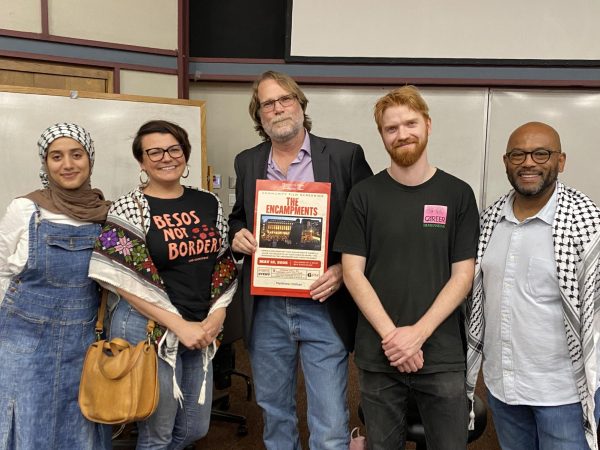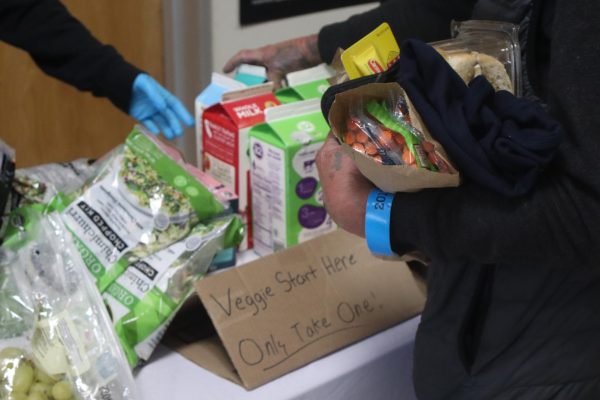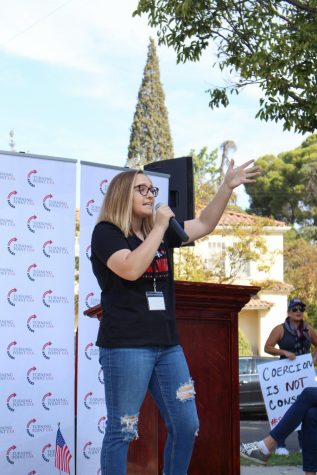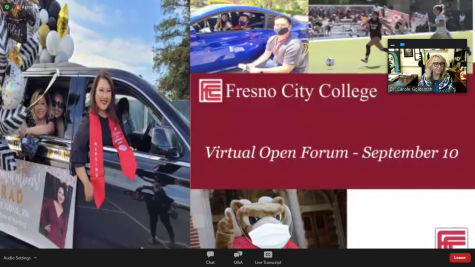Coping With COVID-19: Teachers Evolving With Students

Image courtesy of pxhere.
Fresno City College announced weeks ago that classes would be switching to an online format. Since then, students and faculty have been getting accustomed with Zoom, the online classes and their daily routines.
The COVID-19 pandemic has affected lives all over the world including FCC’s faculty who are now working from home, creating new class structures and adapting to technology.
For some faculty, if not all, learning how to use Zoom has added more work to their already existing load.
Architecture instructor Ken Zamora said that adapting to the new online format has been a challenge.
“Honestly, I’m struggling a bit. This is new territory for many of us,” said Zamora. “I belong to an organization, the Coalition of Community College Architecture Programs, and most of the online discussions have focused on how to teach/conduct online design studios. Grading takes longer and is more cumbersome.”
When Zamora initially heard about the switch he had many questions, including what the transition means for his teaching methods.
“Do I scrap traditional methods I’ve used for 28 years and change to a new paradigm or can those effectively evolve into distance education format?” said Zamora.
Kau Vue, a political science instructor, has made changes while she’s been working at home.
“Going strictly online has required me to make adjustments and think more creatively about how I am going to present activities that I would normally do in class as well as administering assignments and exams,” said Vue.
Vue explained that her workload has increased in some ways. She said she uploads exams and lectures to Canvas and answers emails during the day and evening, and makes sure that she emails her students back as soon as possible because she knows they may be anxiously waiting.
Amber Balakian, an entrepreneurship instructor, was already teaching online classes so she was able to get used to the switch.
“When I first started teaching online, it took me hours to set things up because it was all new to me. So, I am sure that was the case for many people who had not taught online,” said Balakian. “However, the week that we had to set up helped a lot. I think everyone was really working together to make sure no one got left behind.”
Balakian explained that she’s been able to get more work done because she no longer has to commute as long as she uses her time wisely.
“The challenge is keeping a consistent schedule and making sure I have enough time carved out in the day to accomplish what I need to get done. This is a great time to practice time management, which is something I continually need to work on,” said Balakian.
Working from home can come with its own obstacles, especially when everyone in the house is going through the same thing.
“It’s difficult being in a house of six where everyone’s doing their own thing. There’s a lot of noise,” said music instructor, Dr. Brandon Bascom. He also had to make adjustments to his daily routine.
“My wife and I have had to reschedule when we are both using the music studio and have had to coordinate online times also amongst my four children who have their own online zoom sessions with their teachers,” said Bascom.
Vue noticed that there are many distractions when working from home. “Some days it takes a little more effort to not drop everything I’m doing and just read a novel instead,” said Vue.
Vue added that working at home has been a mix of emotions and it’s nice not driving to work, but then she finds herself opening the fridge more often.
Despite the struggles there are upsides to the transition for the faculty.
“I don’t have to commute or have to find a parking space. Being able to have lunch is nice,” said Bascom. “I’m spending a lot more time with my children.”
Bascom believes the online format will be helpful as an instructor. “I think that the quality of my future teaching will benefit from all the content I’m having to create now,” said Bascom.
Vue has had time to take care of her health and even started a new outside activity. Vue said she’s been eating more home cooked meals, watching her diet, exercising and starting a garden.
“More time at home has allowed me to focus on my own health and wellness whereas it was often neglected when I was at work,” said Vue. “I didn’t realize how much I had neglected this essential part of my life until all of this happened.”
Balakian also had a similar experience when it came to neglecting aspects of her life. She said that it took a pandemic to force her to slow down.
Balakian said that her routine has become more simple as well. “It involves some of the little things I neglected, like spending more time with my family and cooking,” said Balakian.
“I do miss the little freedoms, but it has caused me to address some areas that I had been neglecting as well,” added Balakian. Her technological skills have gotten better and business has been good.
“I make a shelf-stable tomato sauce for Balakian Farms. The first several weeks of the pandemic, I sold out of product,” said Balakian. “Gearing up for produce season, we are working on ways to make sure our customers get their produce in the easiest and safest way possible.”
Good things aside, they are all looking forward to returning to the workplace and seeing their students in person when things return to normal.
The instructors encourage students to be understanding of one another as everyone is going through this together.
“We are not infallible and will probably make a mistake once-in-awhile. Just like many of you we’re doing the best we can,” said Zamora. “We do care about our students, their education and their well-being. I think now, more than ever, we need to extend grace to our fellow human beings.”
This is the student focused portion of the Rampage’s Feature Story on COVID-19 and its impact on the FCC community. Check out articles about FCC students and their experiences as well as FCC’s athletics programs.

Janine Tate is a 20 year-old, full-time, second year student at Fresno City College. Her major is
photojournalism and this is her last semester at FCC....








